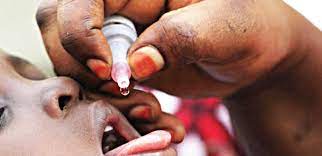Metro
WHO confirms 51 cases of new polio variant in Nigeria

The World Health Organization (WHO) said on Thursday that 51 new cases of Circulating Variant Polio Virus (cVPV2) had been detected in Nigeria.
The WHO Country Representative in Nigeria, Dr. Walter Mulombo, who disclosed at a strategic meeting in Kaduna State, said the cases were detected between January and August 13 this year.
The meeting was organised by the National Primary Health Care Development Agency (NPHCDA) in collaboration with the Sultan Foundation for traditional leaders of inaccessible communities in the North-West.
North-West, according to Mulombo, accounted for 92 percent of the new cases.
The WHO official revealed that 47 of the cases were recorded in 15 local government areas in the region that has been under attacks from bandits since 2019.
He decried the effects of insecurity on access to health services in the North-West, leading to a high rate of maternal and infant mortality in the region.
Mulombo said: “A majority of the outbreaks were from states facing security challenges in the region, causing setbacks to the country’s attainment of universal health coverage.
“The protracted security challenges in the North-West zone, exacerbated by bandits and kidnappers, have led to the breakdown of a health system already experiencing years of neglect and underfunding, affecting the effective delivery of health services, including routine immunisation for children.”
The United Nations health agency certified Nigeria wild polio-free in August 2020.
Join the conversation
Support Ripples Nigeria, hold up solutions journalism
Balanced, fearless journalism driven by data comes at huge financial costs.
As a media platform, we hold leadership accountable and will not trade the right to press freedom and free speech for a piece of cake.
If you like what we do, and are ready to uphold solutions journalism, kindly donate to the Ripples Nigeria cause.
Your support would help to ensure that citizens and institutions continue to have free access to credible and reliable information for societal development.
























